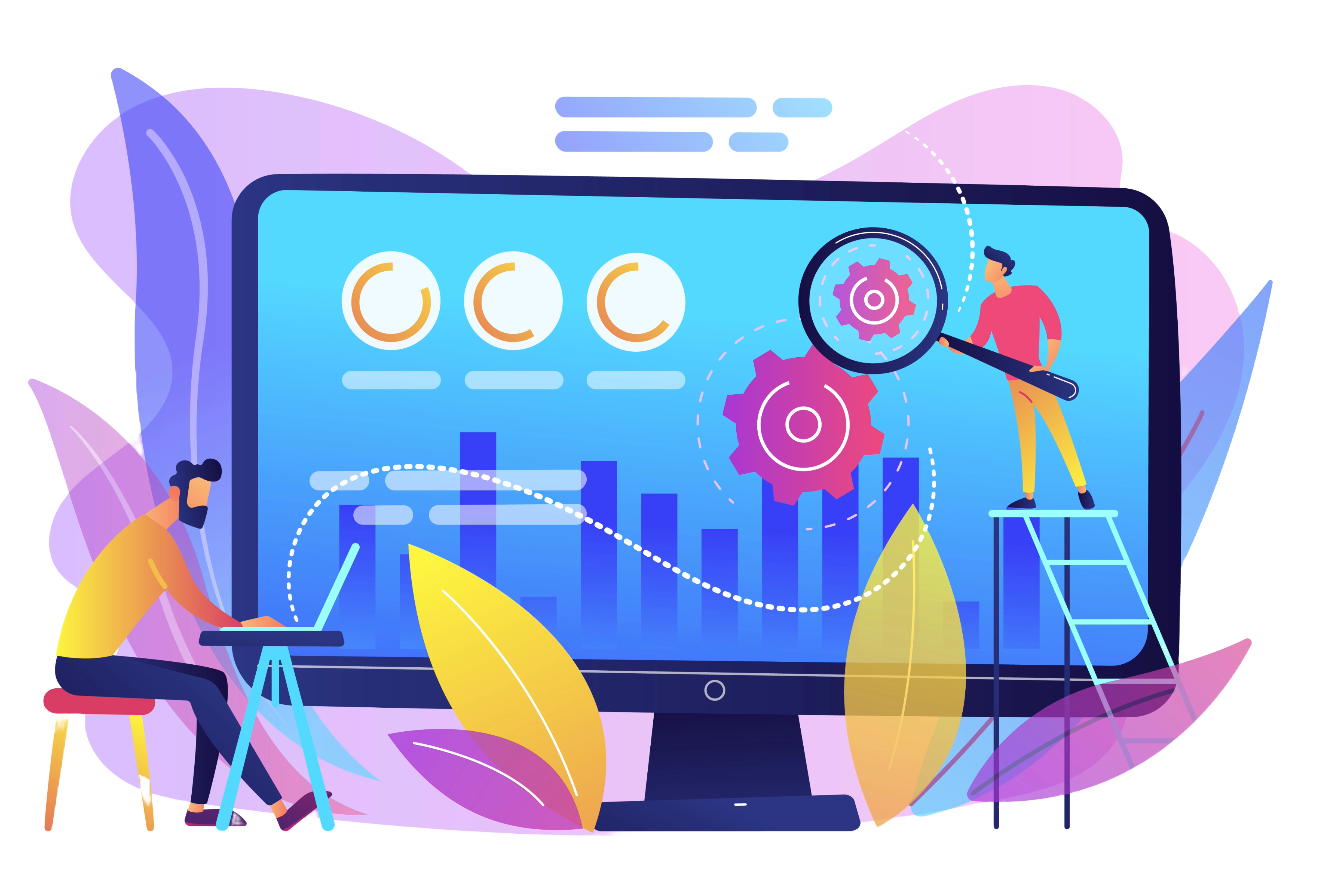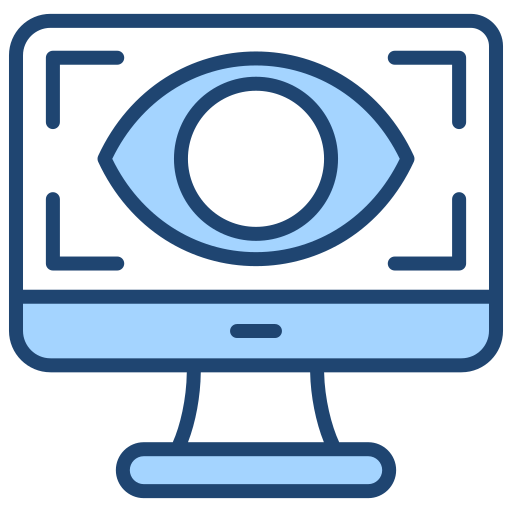
Ethics of Employee Monitoring: Balancing Privacy and Productivity
Have you ever run across the thought on how an employee monitoring app can shape the ethical setting of the modern workplace? Regardless of your YES or NO, get ready to gain or refine your thoughts on the matter 🌝
In a world where technology keeps us connected, the ethics of employee monitoring become a crucial conversation. With the rise of remote work, the practice of employee monitoring has become widespread. Employee monitoring refers to employing diverse methods of workplace surveillance to collect data on the activities and locations of team members. While it brings numerous advantages, companies need to manage ethical and legal considerations. Now, let us look into the depth, exploring the delicate balance between the efficiency of employee monitoring apps and the importance of ethical considerations in the professional realm.
Growing Popularity of Employee Monitoring Software

Considering today’s work environment, keeping tabs on tasks is like having a helpful assistant on your computer. Introducing employee monitoring software, a digital companion that is gaining popularity at a growing pace. However, the widespread adoption of this technology has raised questions about employee monitoring ethics. Okay, but before we explore that, let us look at why everyone jumps on this software?
To begin with, let’s talk about workforce management. What would you feel trying to organize a group project without knowing who’s doing what – a bit challenging, right? Well, employee monitoring software steps in as the ultimate organizer, helping companies manage workforce efficiently.
But here’s the twist: How do these digital organizers ensure they’re not overstepping boundaries? That’s where employee monitoring laws come into play. These laws are important to make sure that companies treat their workers fairly and respect their privacy at the workplace. Further, employee monitoring laws help to create a balance between business needs and employee rights. As such, this emphasizes the ethics of employee monitoring.
Let’s take a look behind the curtain now: Consider an organization where employees are not physically present in the same office but rather work remotely. Companies utilize employee monitoring software to ensure that everything is operating well and that everyone is performing their duties. It helps the business monitor employee behavior to ensure that everyone is collaborating to achieve the same objectives. In doing so, the ethics of employee monitoring are taken into account, making sure that the procedures adhere to moral principles and protect the privacy of every team member.
So, you might ask: Is it all about watching every click and keystroke? Not quite. These tools act as reliable work companions, concentrating on job-related tasks without peeking into personal matters. Probably, the best part 👏
But, here’s the million-dollar question: Why is this software gaining more popularity? This stems from their effectiveness in helping employers pinpoint productivity issues and performance concerns. Through monitoring employee activities, employers can identify individuals who may be falling short or not meeting expectations.
Taking an Ethical Approach to Employee Monitoring
When it comes to overseeing employees’ work, it’s essential to adhere to ethical guidelines. Let’s break down some key principles to ensure a fair and respectful monitoring approach.

Examine Your Motivations
Before looking into employee monitoring, ask yourself why you want to do it. Is it about improving productivity and teamwork, or is it more about micromanaging (no, don’t do that, please)? Moreover, understanding your motivations helps ensure that monitoring is a positive force, focused on collaboration and success, as mentioned in a Forbes article.

Be Transparent
An article from Harvard Business Review opines that being transparent with employees plays a significant role in enhancing their trust with the workplace. Practice employee monitoring ethics by letting your team know that you’ll be monitoring work activities and explaining the reasons behind it. It’s advisable to seek guidance from your company’s legal counsel to ensure a thorough understanding of both your rights and of your employees.

Never Monitor Selectively
How would it feel if only some people were watched? Too bad, for sure. Consistency keeps it fair for everyone. So, fairness matters. Don’t pick and choose whom to monitor based on personal biases. Consistency in monitoring practices fosters fairness, promoting unity and shared responsibility within a team. The ethics of employee monitoring hinge on impartiality and equal treatment.

Be Mindful of the Data You’re Collecting
Collecting data is part of monitoring, but it’s crucial to be mindful. What if someone tracked every move you made? Being mindful keeps it focused on work and respect. As such, only gather information that is necessary for improving workflow and achieving team goals. Also, consider when you collect data—focus on work hours and tasks to respect employees’ personal time.
Having said that, taking an ethical approach to employee monitoring is about creating a positive and fair work environment. By examining your motivations, being transparent, avoiding selective monitoring, and being mindful of the data you collect, you can foster a workplace where everyone feels valued and motivated to succeed.
Embracing Ethical Considerations for Monitoring with the Right Tool
In today’s fast-moving work environment, keeping track of tasks and ensuring everyone is on the same page is crucial for a successful team. Nevertheless, maintaining the right balance between monitoring productivity and respecting employee privacy is equally important. Statily is an employee monitoring tool designed with ethical considerations in mind. It aims to enhance productivity while respecting the privacy and well-being of employees. Let’s explore how embracing employee monitoring ethics with the right tool can benefit both employers and employees.
App & Url Tracking
App & URL tracking feature enables you to efficiently observe your team’s activities by furnishing information about the time spent on tasks. It helps bosses see if everyone is using the right tools for their tasks. This way, the team stays focused on what needs to be done. If you ever wondered where your colleagues spend their time online during work hours, this feature has the answers. It’s a straightforward way to make sure everyone is using their work time wisely and efficiently.
Activity Tracking
Activity tracking is like keeping a record of what you do at work. It helps your manager see when you’re working and what tasks you’re doing. This way, they can understand how everyone is spending their time on job-related things. It’s a simple way for the team to know who is active and working during the day. This kind of tracking is useful for keeping everyone accountable and making sure things get done.

Optional Snapshot
Ever wish you could show your progress in a snapshot? Statily lets you decide. Optional Snapshot feature allows users to selectively capture specific moments, providing flexibility in monitoring activities. It only works if the admin decides to use it, emphasizing the importance of employee monitoring ethics. It means the system can take a snapshot of the user screen, but only when the admin says it’s okay. So, it’s not happening all the time, only when it is allowed to.

Screenshot Monitoring
One of the features that many employee monitoring software have is screenshot monitoring. It enables you to oversee your teams from any location by capturing screenshots or recording screen activities. This way, they can check if you’re doing your job and staying focused on work tasks. It’s a tool companies use to make sure everyone is using their work time wisely, while also considering employee monitoring ethics. However, it’s important to note that the use of such tools should align with employee monitoring laws to ensure fairness and privacy in the workplace.
How Can You Communicate About Employee Monitoring To Employees?
When introducing employee monitoring, effective communication is key to maintaining trust and transparency within the workplace. Here are some straightforward ways to convey this information to your team

Install Visible Signage About Surveillance
Place clear and visible signs to inform employees about the presence of surveillance and uphold employee monitoring ethics. This straightforward approach ensures that everyone is aware of the monitoring measures in place, as mentioned in a Harvard Business Review article.

Be Transparent About Employee Monitoring
Openness is crucial. By clearly articulating the reasons behind such measures and emphasizing the mutual benefits for both the company and individual employees, organizations can build trust and ensure compliance with employee monitoring laws.

Communicate Openly About Employee Monitoring
Hold team meetings or send out company-wide emails to discuss employee monitoring. Encourage questions and address concerns openly. This fosters a culture of communication and helps employees feel heard, promoting transparency in the ethics of employee monitoring.
As such, the key to successfully introducing employee monitoring is through visible signage, transparent explanations, and open communication. When employees understand the reasons behind monitoring and feel included in the conversation, it contributes to a more positive and collaborative work environment.
Reflection
As the workplace evolves with technology, the ethics of employee monitoring become paramount. Further, monitoring the workforce has become a vital tool for maintaining productivity and teamwork. Yet, it’s essential to overcome this ethically, upholding both business necessities and the rights of employees, with clear laws and transparent communication as guiding principles. Having said that, maintaining the right balance encourages a positive work atmosphere where everyone feels valued, motivated, and accountable for their contributions. As such, this ensures a responsible approach to employee monitoring ethics.
Comments